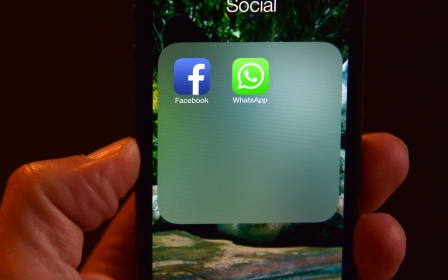Saudi Arabia to lift ban on internet calls
Saudi Arabia will lift a ban on internet phone calls, a government spokesman said, part of efforts to attract more business to the country.
All online voice and video call services such as Microsoft's Skype and Facebook's WhatsApp that satisfy regulatory requirements will become accessible at midnight, Adel Abu Hameed, spokesman for the telecoms regulator CITC said on Twitter on Wednesday.
The policy reversal represents part of the Saudi government's broad reforms to diversify the economy partly in response to low oil prices, which have hit the country's finances.
"Digital transformation is one of the key kick-starters for the Saudi economy, as it will incentivise the growth of internet-based businesses, especially in the media and entertainment industries," a statement from the information ministry said.
"Access to VoIP (voice over internet protocol) will reduce operational costs and spur digital entrepreneurship – that's why it is such an important step in the Kingdom's internet regulation," it said.
Saudi Arabia - which introduced the ban in 2013 - and its Gulf Arab neighbours have been wary of secure internet communication, which experts say is harder to monitor, especially by activists and militants.
Gulf Arab states, except the island kingdom of Bahrain, were mostly spared the "Arab Spring" mass protests often organised over the Internet which roiled much of the region in 2011.
Lifting the ban could squeeze Saudi Arabia's three main telecoms operators - Saudi Telecom Co (STC), Etihad Etisalat (Mobily) and Zain Saudi - which earn revenue from international phone and text calls made by the millions of expatriates living in Saudi Arabia.
Iyad Ghulam, senior analyst at Riyadh's NCB Capital, said due to the policy change, telecoms operators could be looking at a revenue loss of six to seven percent on international calls alone, but that would be at least partially mitigated by higher demand for data.
"This move is basically telling these companies: You have to move on. Stop protecting your voice segment and move on," he said.
How these companies respond could generate some changes in market share, he said.
The Saudi authorities will continue to regulate the Internet to restrict content that violates the country's laws such as extremist material, pornography and gambling sites, the information ministry said.
Stay informed with MEE's newsletters
Sign up to get the latest alerts, insights and analysis, starting with Turkey Unpacked
Middle East Eye delivers independent and unrivalled coverage and analysis of the Middle East, North Africa and beyond. To learn more about republishing this content and the associated fees, please fill out this form. More about MEE can be found here.




